- Home
- Gordon Korman
Schooled Page 11
Schooled Read online
Page 11
The teenager gave me an odd smile. “Where he is they don’t have a phone.”
They drove away, leaving us standing on their doorstep, stunned.
Finally, Lena spoke, her voice subdued. “I think I might know why we can’t find Cap.”
Meltdown—that’s the only word to describe my state of mind. For months I had been wandering the desert, throwing myself at that undeserving creep Zach. Now—finally—I understood my true feelings.
And it was too late.
Up until that moment, no one had dared to speak the awful words out loud. But I couldn’t keep them bottled inside me any longer.
“What if he’s dead?”
25
NAME: ZACH POWERS
First things first: I didn’t believe it for a heartbeat.
The rumors were beyond nuts. Cap’s in the hospital…He’s in the morgue…He’s in a persistent vegetative state…He’s suffering from amnesia…He’s upside down in a fish tank….
I’d lost all respect for the intelligence level in this place. They should raffle off the Brooklyn Bridge at the next PTA fund-raiser.
I couldn’t explain where Cap was, and frankly, I didn’t care. Not only was my year in ruins, but my name was mud at C Average. Me—Zach Powers! And it was all thanks to the Case of the Disappearing Hairball.
People were nuts on the subject. I don’t think I heard a single conversation on any other topic. Teachers were complaining that their students could focus on nothing else. I figured most of the kids were just bummed that the dance had been canceled. No—people were genuinely worried about the hippie!
“What’s the big deal?” I said for the umpteenth time. “So he slipped back through the same time warp he dropped out of in the first place.”
Naomi cut me dead with a flamethrower glare. “You never liked him! You tried to make a fool of him!”
It was scary how much that girl hated me now. I used to think she was kind of hot for me. Maybe I misread the signs.
“Yeah,” I admitted. “So did you. So did the whole eighth grade.”
“But then some of us saw the kind of person Cap was,” Lena put in. “Some of us appreciate how he devoted his heart and soul to the school.”
“Heart and soul?” I exploded. “He held a funeral for a bird! He danced on the front lawn! He played senior citizen music! The Beatles and that other grandpa—Guitarfunkel, or whatever his name is.”
“Garfunkel,” Naomi corrected icily. “Simon and Garfunkel.”
“Listen,” Lena told me, “Cap gave his life—”
“He didn’t—”
But I was fighting a losing battle. If Lena believed it, it might as well have been the lead story on CNN. Cap put his all into C Average, and for that he was struck down. If he wasn’t dead, he was seriously messed up.
“Just because you can’t find someone doesn’t mean he’s at death’s door!” I argued with at least twenty people. “I can’t tell you exactly where Tom Cruise is, either. That doesn’t make him a corpse.”
Talk to the wall. Eleven hundred kids were absolutely convinced that the eighth grade president had come to tragedy. And it was all thanks to the football team, Darryl Pennyfield, and me.
I couldn’t take three steps in the hall without getting a dirty look from somebody. Even sixth graders felt they had the right to scowl in my direction. Every time I came back to my locker there was a fresh insult scratched into the paint: jerk, dope, or something else with the same number of letters.
“Has everybody gone off the deep end?” I complained to Hugh in the cafeteria. “When the Garrets redid their kitchen, nobody saw Alicia for like, three weeks. Not one person thought she was dead.”
“Yeah, but the whole school didn’t watch Alicia Garret being loaded into an ambulance,” he pointed out. “And the biggest party of the year wasn’t canceled right after that.”
I scowled at him. “Don’t tell me you’re about to join the chorus of mourners for our dear departed Sasquatch.”
“Of course not,” he told me. “I think it’s a load of hooey. But I can’t say I’m surprised. If this school was full of geniuses, I’d have a lot more company on the chess team.”
It was the ultimate barometer of my plummeting status. The only person willing to eat lunch with me was Hugh. If I could track Cap down using hippie LoJack, I wouldn’t know whether to haul him back or hide out with him. Part of me just wanted to disappear.
“Hey, what’s that?” Suddenly, Hugh reached over and began rifling through my hair.
I slapped his arm away. “Cut it out, man!”
“Look!” He plucked a small object from behind my ear and held it in front of me—a pea-size blob of soggy white paper.
A spitball.
I examined it, unbelieving. “That’s impossible—”
He was disgusted. “Spitballs can travel both ways, you know. You don’t have a force field around you.”
I stared at him, the target of more of my spitballs than everybody else put together. “I suppose you’re waiting for an apology.”
“I’m just enjoying my front row seat at Payback Fest,” he sneered.
“Hey, you bring a lot of it on yourself,” I accused.
“It’s my fault I get picked on?”
“From the first day of kindergarten, everything about you screamed dweeb—your clothes, your hobbies, your vocabulary—”
He scowled. “And you’re perfect.”
I told the truth. “My whole life, it’s always been obvious what sports to play, what bands to listen to, what people to hang out with. It’s as if I was born with a natural guidance system inside my head, showing me how to be cool.” My brow clouded. “But Cap Anderson doesn’t come with a book of instructions.”
Instead of gloating, he actually seemed to understand. For Hugh Winkleman, the whole planet didn’t come with a book of instructions.
He said, “Too bad you can’t just start liking him.”
If he had smacked me with a brick, I couldn’t have been any more stunned. How could I have missed something so obvious? “Hugh, that’s it!” I exclaimed. “If we can’t stop this hippie bandwagon, we’ll have to find a way to jump on.”
“Isn’t it a little too late for that?” he challenged. “Cap may not be dead, but he’s definitely gone.”
“We might be able to work that to our advantage. Come on.”
I strode out of the lunchroom and across the hall to the library. He wolfed down what was left of his sandwich and followed.
I logged on to a computer, pounded the keyboard for a few moments, and swiveled the screen toward him. His eyes widened as he read:
A TRIBUTE TO CAP ANDERSON
PAY YOUR RESPECTS TO
THE BEST 8TH GRADE PRESIDENT EVER
SATURDAY, 7 P.M.
(THE TIME OF THE HALLOWEEN DANCE
HE NEVER GOT TO GIVE US)
IN THE PARKING LOT
DO NOT SHOW TO ANY TEACHERS!
He tried to say something, and began to choke on a mouthful of peanut butter and jelly.
I pounded him on the back, cackling with glee. Zach Powers was down but not out!
“Load the paper tray. We’ve got a lot of printing to do.”
26
NAME: SOPHIE DONNELLY
T-day at last. My driving test.
Things were finally falling into place. Dad had come through with the bracelet. I was an only child again. Life was even looking up on the boyfriend front—for the last couple of days I’d been on the receiving end of some intense glances from Martin Enfield, a senior on the lacrosse team.
Now I just had to pass this test. Dad phoned to wish me luck, going on and on about how proud he was. He talked as if he’d been my mentor and not someone who’d finally showed up to give me a few lessons before blowing town. But it was good to hear his voice. And anyway, I had something to say to him on a previous topic.
“Thanks for getting the bracelet back to me. The inscription—it was really sweet.�
�
There was dead silence on the other end of the line.
“Dad, are you there?”
“Yeah, Soph, I’m here,” the reply came at last. “I’m on my cell, and the connection isn’t great. What was that about the bracelet?”
“Just thank you. The inscription—I never knew you were so sentimental.”
“Glad your old man can still get the job done,” he said smoothly. “Listen, Soph, you’re breaking up. I can barely hear you. Good luck on the test. Knock ’em dead—”
The line went silent.
I hung up, frowning. The connection hadn’t seemed so terrible to me. Even more confusing was his reaction to my thank-you for the bracelet. For a moment there I could have sworn he didn’t have the faintest idea what I was talking about.
My mother bustled in. “Ready to go?”
“Mother, do you think Dad could have already forgotten about sending back the engraved bangle?”
She gave me that sympathetic social-worker look that she normally reserved for her loser clients like Cap Anderson. “Your father loves you, and he always has the best of intentions.”
Ask a simple question, get a load of touchy-feely psychobabble in return. “So I should take that as a yes?”
“Honey, this is such a big day for you. Why would you dwell on something that’s only going to make you unhappy?”
Whatever.
The waiting room at the DMV was decorated with large, mounted photographs of multivehicle pileups. Real subtle. Truth be told, I was scared to death. When the examiner got into the car, I honestly thought I might lose my lunch.
“Make a left out of the parking lot,” he instructed.
It was a wet day—not pouring rain, but misty. That spooked me too. Turning the wheel, working the pedals—these things should have been second nature. Today they seemed awkward and complicated, like I was defusing a bomb. One wrong move and—boom.
To calm my nerves I tried to replace the instructor with a mental image of Dad in the passenger seat. Yet, for some reason, the imaginary companion my brain conjured up was not my father, but Cap. I shook my head to reboot, but he was still there. The freakazoid was coming with me on the most important test of my life!
And why did the examiner have to take me down such a narrow street? There were parked cars on both sides, with very little road between them. Oh, no—
I was on the edge of panic when a familiar voice sounded inside my skull: If the front gets through, the rest will drag.
Gritting my teeth, I aimed the hood into the tight passage and held on for dear life. It was all I could do to keep from cheering as the Saturn threaded the needle.
Thanks, Cap. It was a good thing Rain drove a taxi before devoting her life to terrorizing my mother.
“Turn onto the interstate,” the examiner ordered.
I took it slow merging onto the highway. As we picked up speed, droplets of water began running down the windshield. I set the wipers on intermittent, feeling a little more confident.
Still, my mind kept returning to the phone conversation with Dad. Believe me, I knew the man was a flake. But how could he forget about the bracelet? He didn’t just give it to me—he presented it, took it away, had it engraved, and then brought it to the post office to mail. Anything with that many steps would stick in your mind, wouldn’t it?
“Exit here and head east on Fillmore…”
I obsessed on the subject until the bangle on my wrist felt like an iron shackle from some medieval dungeon. How I managed to operate the car was a total mystery. I was completely distracted. And the more I twisted the facts, the more they pointed to a single inescapable conclusion.
Dad didn’t forget about the engraved bracelet. He never sent it to me in the first place. It must have been Mother.
That wasn’t her style, though. Not that she wanted me to be miserable. But the one thing she always said about her job was “I can’t let these kids live in a fantasy land.” She was always nagging people to face reality, even me. Especially me, when the subject was my father.
It made no sense that she’d go through an elaborate ruse to trick me into believing that he’d followed through on his promise.
But if not her, then who?
“…and I just need you to parallel park between these orange cones,” the examiner was saying. “Run the defogger a minute to make sure you can see out the back.”
I reached for the button and missed. Instead, my finger hit the on switch for the radio. Music filled the car—the Beatles singing the chorus of “All You Need Is Love.”
“Anyone who lived through the sixties will remember this old classic,” came the deejay’s voice as the song began its slow fade.
And suddenly, there were tears streaming down my cheeks.
The examiner was appalled. “There’s no need to cry, miss! It’s no big deal—you just hit the wrong button. I won’t take off any points for that!”
“No, it’s not that—” I managed, still blubbering. But how could I ever explain it? The radio! The song!
That engraved bangle wasn’t from Dad or Mother! All You Need Is Love? There was only one person who could have come up with that inscription.
Cap.
I crunched all four orange cones. The examiner passed me anyway. I think he just felt sorry for me.
At that point, I was so broken up I don’t think I would have noticed if the car had burst into flames. Cap had bought the bracelet and had it engraved just so I wouldn’t feel bad about Dad blowing me off. He got absolutely nothing in return. He wasn’t my boyfriend; he wasn’t even my friend. He couldn’t expect so much as a thank-you, since the gift was supposed to be from someone else. He did this for no other reason than to make me happy.
When I got back to the waiting room, Mother took one look at my red eyes and ashen complexion and assumed the worst.
“Never mind, honey. You’ll take the test again.”
I lashed out at her. “Get a clue, Mother! I have to go pick up my license.”
She was astonished. “Then why are you crying?”
Why? Because I had never said a civil word to Capricorn Anderson. From the day he’d first set foot in our house, I’d declared war on the poor kid. I’d called him freakazoid, poured water on him, and never missed a chance to point out what a loser he was.
And he’d responded by doing the most wonderful thing anyone had ever done for me.
I clamped my jaw shut. The last thing I wanted was to let this slip in front of my mother. I felt horrible enough as it was.
I couldn’t even enjoy the moment of being a licensed driver—almost as if it was unfair for something good to happen to a rotten person like me.
And the worst part was it was too late for me ever to make it up to Cap. He was gone, sucked back into 1967. His last chance at having a life was shot.
I thought back to myself in eighth grade—all the good times still to come. But not for him. He was buried in his ponchos and peace signs.
Tomorrow was Halloween. Those Halloween dances were the best thing about middle school. The poor guy got hauled off to the freak farm before he even had a chance to party, get wild, actually dance with a girl.
And there was nothing anybody could do about it.
Unless…
27
NAME: CAPRICORN ANDERSON
I gave the picking pole an expert twist. When I felt the weight of the apple in the canvas catcher, I lowered it to deposit yet another Macintosh into the basket. It was overripe and not as firm as it should be.
Everything at Garland was like that—neglected. And with Rain still hobbling around on a cane, most of the extra work was falling on me.
On the whole, we’d been lucky. The fruit was a little past its prime, but the potatoes, carrots, and turnips were in good shape.
The really great news was that Rain was making a full recovery. Just being at Garland seemed to energize her. By the second day home, she was driving again, taking our truck into town to restock
our supplies.
She didn’t even need me to go with her.
“There’s plenty to be done right here,” she told me. “Besides, I think you’ve had enough of civilization for a while.”
I got her point. I had two black eyes, and my nose still hurt where Darryl had punched it. A wounded raccoon—that’s how Rain described me.
So off she went, leaving me filling the root cellar with bushel baskets of vegetables, pruning the fruit trees, spreading the compost—getting ready for winter.
It was Garland—my Garland—everything I’d longed for all these weeks. And I was happy to be home.
But…
My mind kept wandering back to the halls of C Average Middle School—the crash of locker doors, the babble of excited conversation. The ringing of cell phones, the beeping of Game Boys, the traces of far-off rap music escaping the ear buds of a hundred iPods.
It was crowded, noisy, obnoxious, and even scary. But it had its own rhythm and urgency and life. And I missed it so much it was almost like an ache.
At night I spent hours poring over the yearbooks. Each familiar face triggered an avalanche of memories: tai chi on the lawn, singalongs in the music room, tie-dyeing, the hundreds upon hundreds of Halloween dance volunteers.
I looked around Garland, and in my heart, I knew it was the best place for me. But the quiet, the dull beiges and greens, the familiar farm chores, the complete lack of other people—this used to be my life; it used to be enough. Before.
Did I want to go back? How could I? I spent all my time there wishing I was here. Yet that life kept calling me. I wanted to eat food that was scooped onto my tray by crabby ladies in hairnets and greasy aprons. I wanted to watch reruns of Trigonometry and Tears. I wanted to twist the little metal dial to those mysterious numbers that would magically open my locker. I wanted Sophie Donnelly to call me freakazoid one more time.
In just a couple of hours, the Halloween dance would be starting. It was the responsibility of the eighth grade president. Okay, I knew nothing about dances and had planned zero percent of this one. But I should be there.
I’d asked Rain just that morning if I could go, and she’d said no.

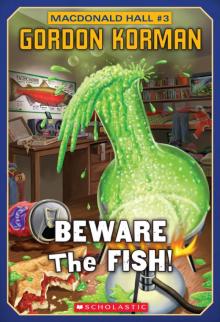 Beware the Fisj
Beware the Fisj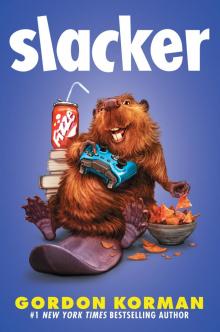 Slacker
Slacker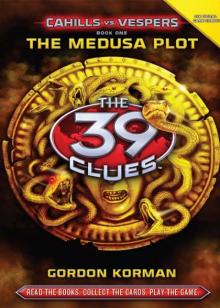 The Medusa Plot
The Medusa Plot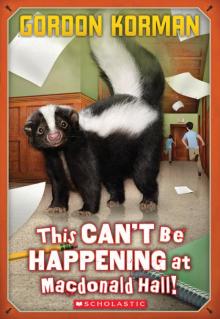 This Can't Be Happening at MacDonald Hall!
This Can't Be Happening at MacDonald Hall!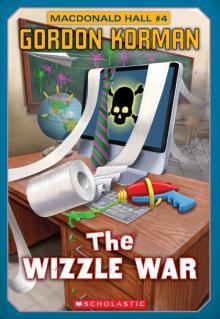 The War With Mr. Wizzle
The War With Mr. Wizzle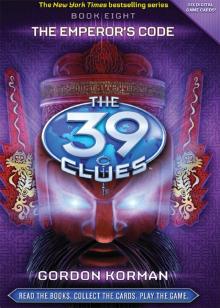 The Emperor's Code
The Emperor's Code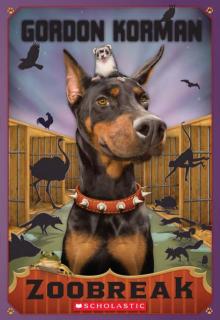 Zoobreak
Zoobreak The Danger
The Danger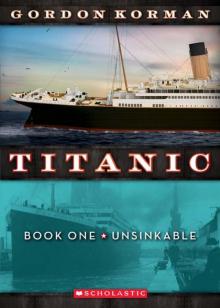 Unsinkable
Unsinkable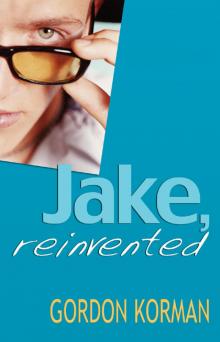 Jake, Reinvented
Jake, Reinvented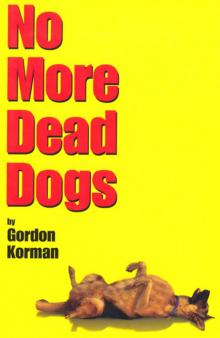 No More Dead Dogs
No More Dead Dogs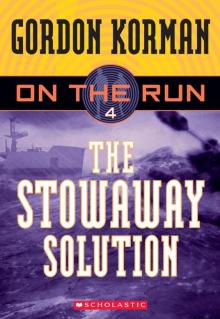 The Stowaway Solution
The Stowaway Solution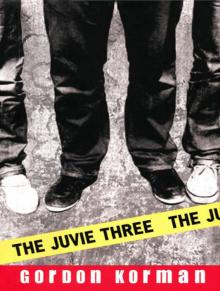 The Juvie Three
The Juvie Three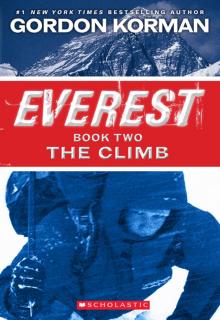 The Climb
The Climb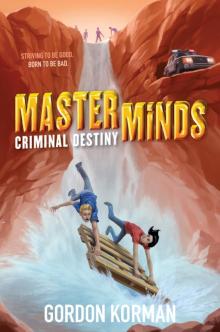 Criminal Destiny
Criminal Destiny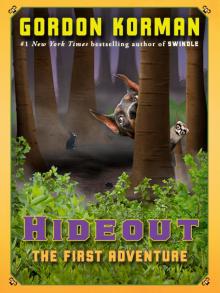 Hideout: The First Adventure
Hideout: The First Adventure Flashpoint
Flashpoint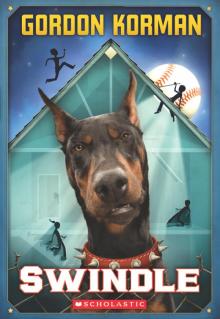 Swindle
Swindle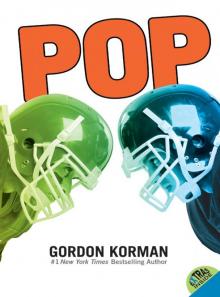 Pop
Pop The Rescue
The Rescue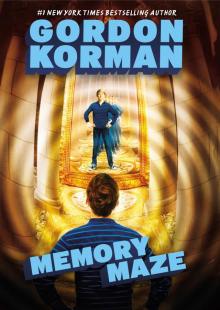 Memory Maze
Memory Maze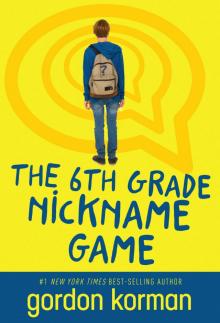 The Sixth Grade Nickname Game
The Sixth Grade Nickname Game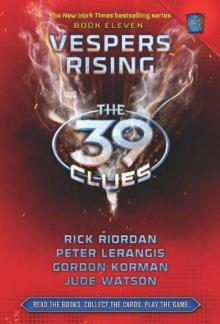 Vespers Rising
Vespers Rising Collision Course
Collision Course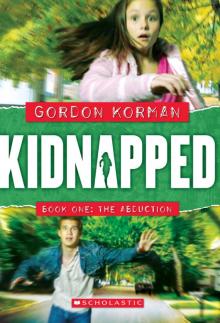 The Abduction
The Abduction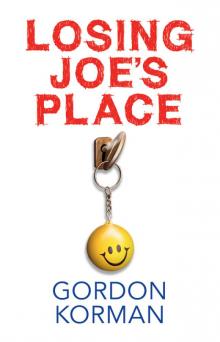 Losing Joe's Place
Losing Joe's Place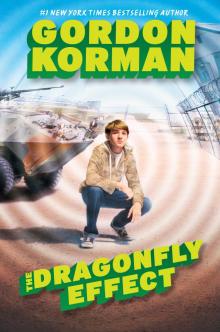 The Dragonfly Effect
The Dragonfly Effect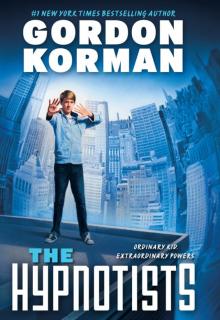 The Hypnotists
The Hypnotists Survival
Survival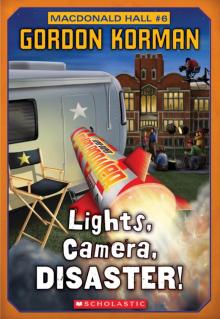 Lights, Camera, DISASTER!
Lights, Camera, DISASTER! Payback
Payback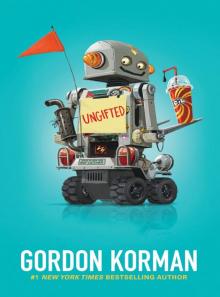 Ungifted
Ungifted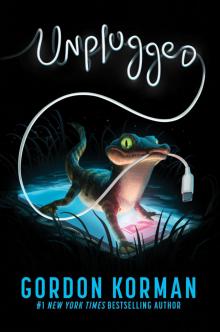 Unplugged
Unplugged Framed
Framed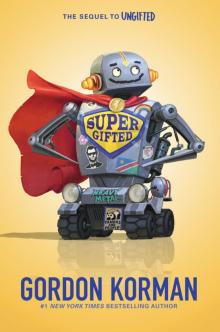 Supergifted
Supergifted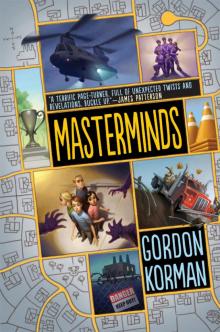 Masterminds
Masterminds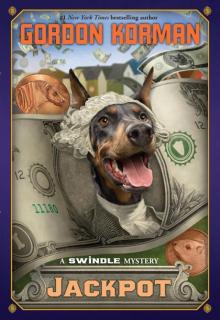 Jackpot
Jackpot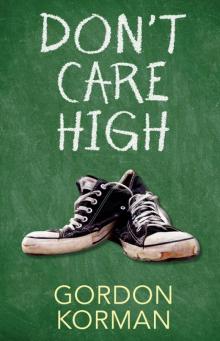 Don't Care High
Don't Care High The Deep
The Deep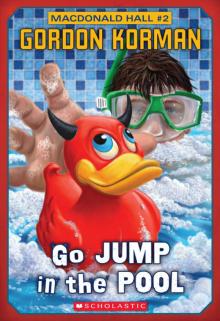 Go Jump in the Pool!
Go Jump in the Pool!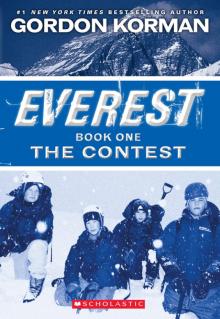 The Contest
The Contest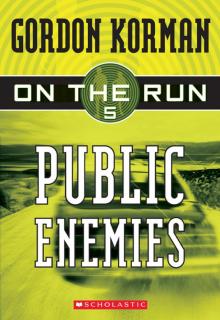 Public Enemies
Public Enemies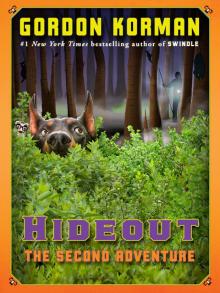 Hideout: The Second Adventure
Hideout: The Second Adventure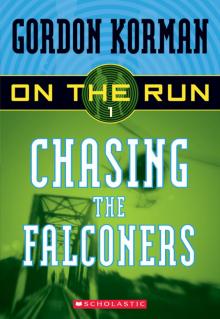 Chasing the Falconers
Chasing the Falconers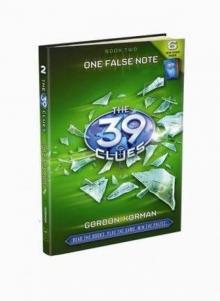 One False Note
One False Note Shipwreck
Shipwreck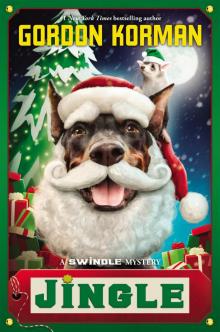 Jingle
Jingle Unleashed
Unleashed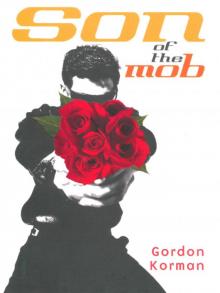 Son of the Mob
Son of the Mob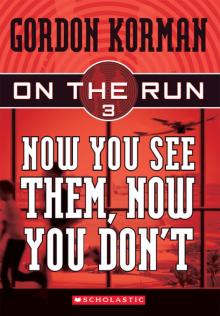 Now You See Them, Now You Don't
Now You See Them, Now You Don't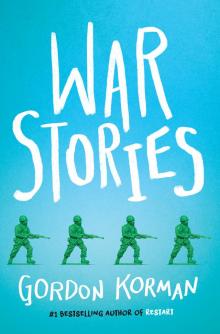 War Stories
War Stories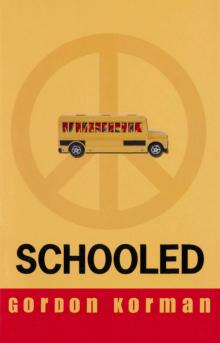 Schooled
Schooled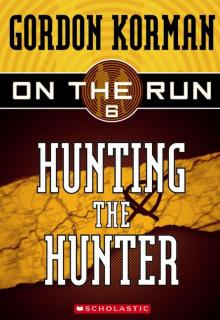 Hunting the Hunter
Hunting the Hunter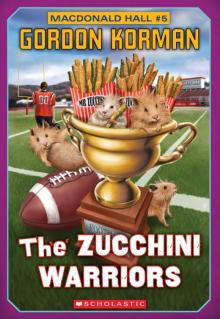 The Zucchini Warriors
The Zucchini Warriors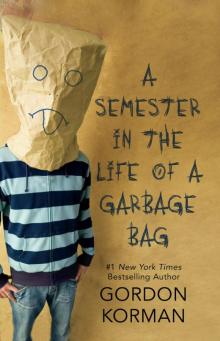 A Semester in the Life of a Garbage Bag
A Semester in the Life of a Garbage Bag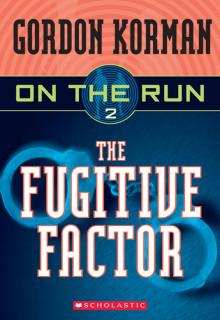 The Fugitive Factor
The Fugitive Factor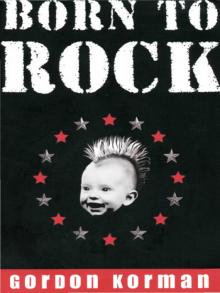 Born to Rock
Born to Rock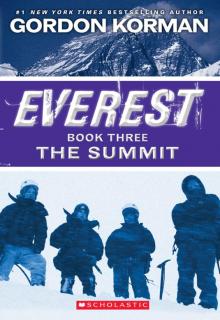 The Summit
The Summit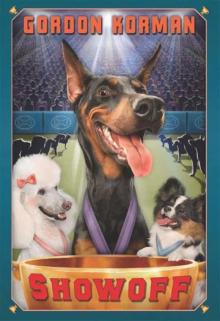 Showoff
Showoff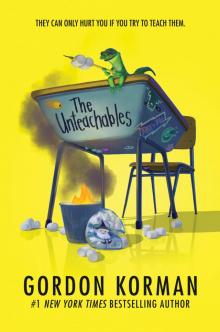 The Unteachables
The Unteachables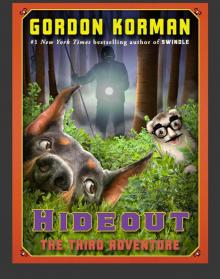 The Third Adventure
The Third Adventure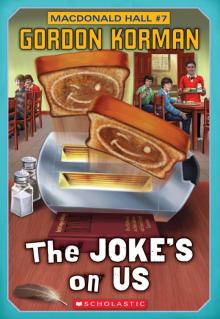 The Joke's on Us
The Joke's on Us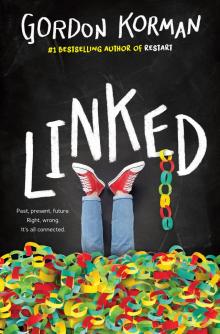 Linked
Linked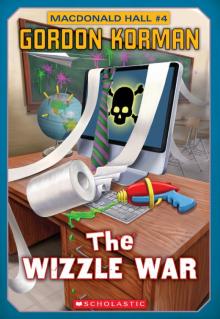 The Wizzle War
The Wizzle War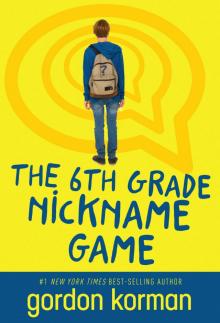 The 6th Grade Nickname Game
The 6th Grade Nickname Game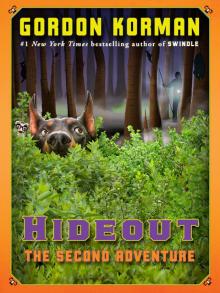 The Second Adventure
The Second Adventure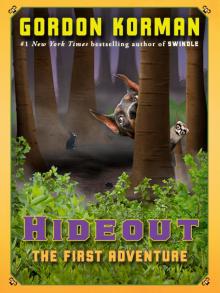 The First Adventure
The First Adventure![39 Clues : Cahills vs. Vespers [01] The Medusa Plot Read online](http://i1.bookreadfree.com/i2/04/10/39_clues_cahills_vs_vespers_01_the_medusa_plot_preview.jpg) 39 Clues : Cahills vs. Vespers [01] The Medusa Plot
39 Clues : Cahills vs. Vespers [01] The Medusa Plot